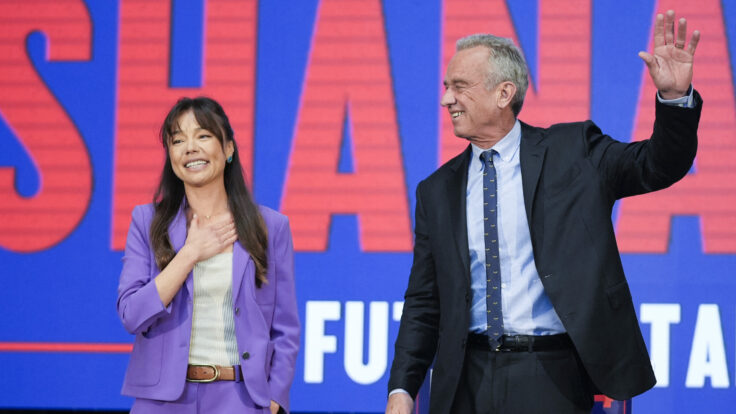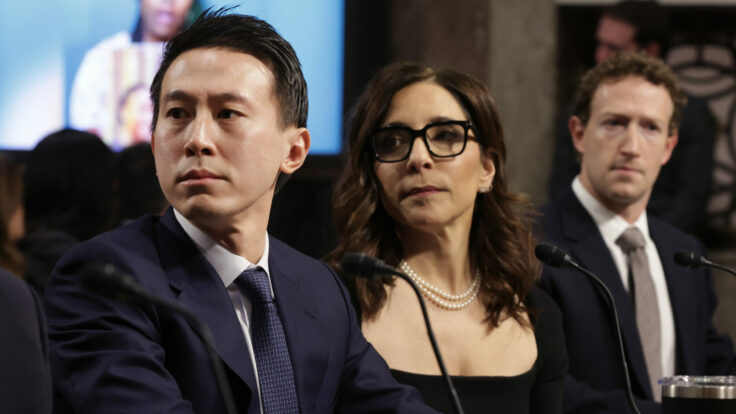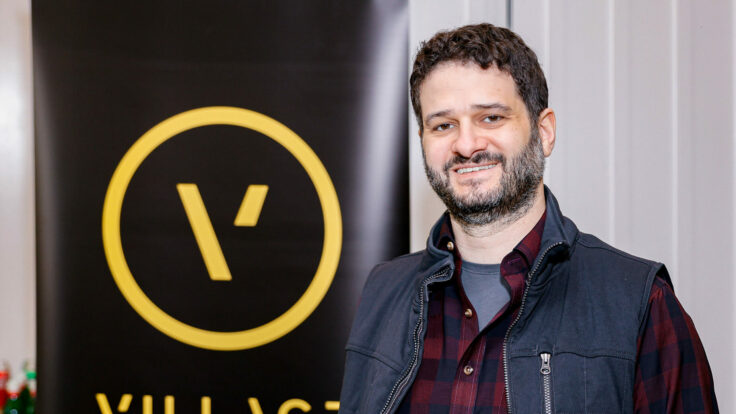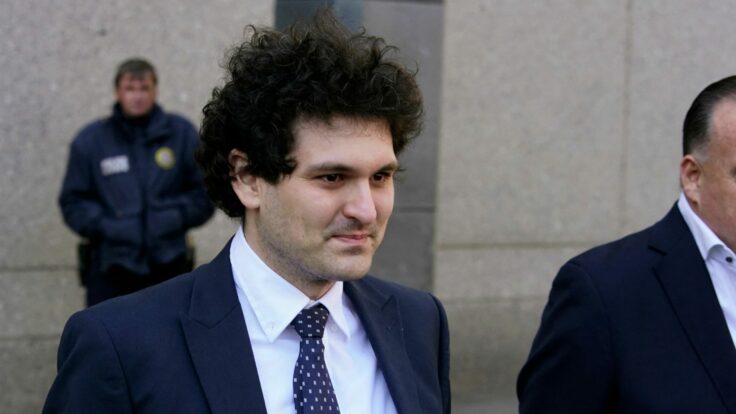One of the most anxiety-inducing questions in the world of big-money Democratic politics is whether the anti-Trump tech billionaires—people like Dustin Moskovitz, Mike Moritz,and Vinod Khosla—who injected hundreds of millions of dollars into the 2020 election cycle will exit politics just as quickly as they came. No single person triggers that agita in progressive circles more than Reid Hoffman, the affable LinkedIn founder and mega-connector who has ironically become one of his party’s most controversial donors.
The question whispered in Democratic circles is, essentially, whether Hoffman is more of a Sean Parker, who has largely receded from the Democratic trenches after the Obama years, or more of a Schmidt, who reliably opens his checkbook every cycle. “We’ve mostly come to terms with whatever he’s given in the past, he’s almost certainly not going to match—so you have to find the money elsewhere,” said the leader of one Democratic group who described their talks with peers.
During the Trump years, Hoffman committed more than $100 million to try to modernize Democratic operations. He also spent his time, more than any other Silicon Valley titan: During the heat of the general election campaign, Hoffman appeared as the special guest on a Biden bundler call and offered that he would step out of his portfolio companies’ board meetings to handle political work if required. (One has to wonder how other board members felt about that statement.)
After failing to score the total repudiation of Trumpism that he sought, Hoffman made the virtual rounds, popping up on election debriefs. His advisers authored a What Happened slideshow. But in public interviews, he has sometimes sounded frustrated notes about the amount of “mud thrown at me” by fellow Democrats in exchange for his efforts, although he felt it was worth it to get rid of Trump.
All the donors and aides I talk to highly doubt that Hoffman is out for good. There is, though, a huge difference between the billionaire cutting a check and Hoffman spending his time pressing the flesh with the “Silicon Valley funders and founders who know him and will fund whatever he says to fund,” in the words of one Democratic operative who is well-traveled with major donors.
What’s unusual about Hoffman is the amount of power held by his gatekeeper, Dmitri Mehlhorn, who became one of the most influential voices behind closed doors despite having limited political experience before Trump. Donor-advisers typically keep a low profile. But Mehlhorn is such a one-of-a-kind figure that there’s almost as much curiosity on Democratic calls about his next steps as there is about Hoffman’s.
I’ve been telling people who asked me over the last few months that Mehlhorn had actually given his answer aloud already, if they cared to check the tape. “My intention is to no longer be involved in politics after January 20th,” Mehlhorn said just before Election Day on the phenomenal podcast The Great Battlefield.
That was the original plan. And indeed, in the months after the election, Mehlhorn has been telling people that he was getting tired and was winding down his political footprint, I am told. He hasn’t held any of his influential briefings for mega-donors that he did in the run-up to November. Other people say they don’t sense the same relentless energy that they once saw from him. Makes sense, I suppose—the election is over.
And yet … he’s still technically here. Some people are trying to keep him in the game. So to me one of the big clues to the Hoffman Question is whether Mehlhorn continues to work for him full-time—or decides to call it quits. Mehlhorn does have a deputy, Tamer Mokhtar, who I hear is staying active on the scene. But it is Hoffman and Mehlhorn who are officially the co-founders of the shop, which is called Investing in US.
Another tea leaf is whether Hoffman funds what he theoretically should fund. And I think we’ll get a read on that shortly. That’s because one of the buzziest post-election progresssive groups is a new media play run by Tara McGowan called the Project for Good Information. McGowan founded Acronym, which is either an incredibly innovative operation or a cynical outfit that has co-opted the right-wing media playbook, depending whom you ask in Democratic circles. (There’s no one without an opinion on her.)
McGowan is trying to raise $65 million for her next act. And if there’s a donor who she could create in a factory for her pitch to create a new kind of progressive media, it’s Hoffman. So my two cents is that if Hoffman isn’t funding the Project for Good Information—and I don’t know one way or the other if he is—then that’s a bad sign for people who want Reid to remain a Democratic megadonor.
But let me end this item with a little scoop: Hoffman is expected to be one of several hosts of a big virtual fundraiser for Joe Biden being planned for the end of the month, I am told. Don’t tell anyone about this, because not even all the Biden bundlers in the Bay are in the loop.
No comment from the D.N.C., but the end-of-quarter event will be Biden’s first D.N.C. fundraiser as president. And he’ll get the Reid Hoffman treatment.













